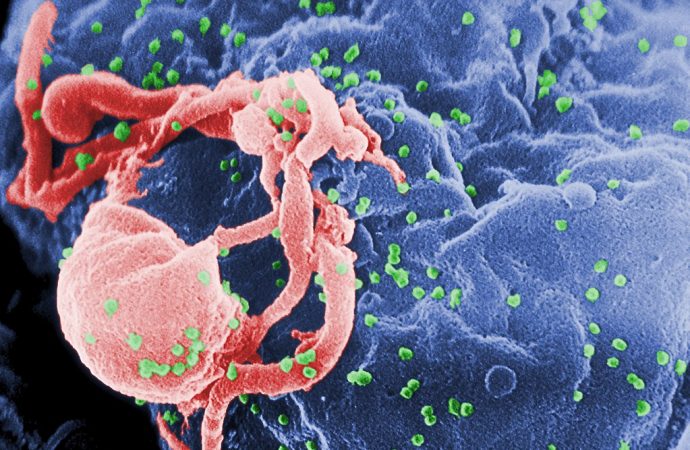A decade after the ‘Berlin patient’, a second person appears to be free of HIV. A male patient in the UK has been in remission for 18 months, after quitting the antiretroviral therapy. The case was reported on March 5 in the journal Nature, by a team of researchers from the University of Oxford and the University of Cambridge. Even though it is too early to speak of ‘a cure’, the HIV load in the patient’s plasma has been undetectable and the levels of HIV-antibodies are now similar to those achieved by the ‘Berlin patient’.
Like the ‘Berlin patient’, the male patient underwent a stem-cell transplantation, which allowed the replacement of his white blood, infected cells with HIV-resistant cells from a donor. The HIV-resistance is conferred by a genetic mutation in the CCR5 coreceptor, a protein present on the surface of cells. When HIV infects an individual, it targets and anchors itself to this coreceptor, before it unloads the viral load inside the white blood cells, which, in turn, divide and replicate, creating a generalized infection. Cells that lack this coreceptor create a barrier for HIV since the virus can no longer attach and replicate itself inside the host.
Since 2012, the patient was treating an aggressive form of blood cancer with chemotherapy. In HIV-infected individuals with aggressive cancers, chemotherapy helps to kill the infected cells. The combination of chemotherapy and stem-cell transplantation, however, is not suitable for every HIV patient. A bone-marrow transplantation is a delicate procedure which involves serious risks of graft-versus-host disease, where the cells of the donor attack the host’s tissues. For cancer-free HIV-patients, antiretroviral therapy remains the most effective treatment so far.
Sources:
Gupta, Ravindra, et al. “HIV-1 remission following CCR5Δ32/Δ32 haematopoietic stem cell transplantation.” (2019).
Image Credit: C. GoldsmithContent Providers: CDC/ C. Goldsmith, P. Feorino, E. L. Palmer, W. R. McManus [Public domain], via Wikimedia Commons





